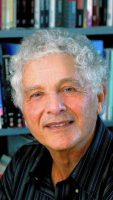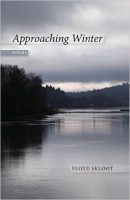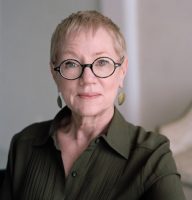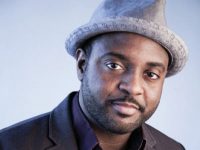December 15, 2015
Edited by David Sanders
Specimen Days
1598 – Philip van Marnix, Flemish ruler of St Aldegonde/poet, dies at 58.
1875 – Emilio Jacinto, Filipino poet and revolutionary (d. 1899), is born.
1913 – Muriel Rukeyser, US, poet (1977 Shelley Memorial Award), is born.

Yesterday I looked at one of you for the first time.
You were lighter that the others in color, that was
neither good nor bad.
I was really looking for the first time.
You seemed troubled and witty.
Today I touched one of you for the first time.
You were startled, you ran, you fled away
Fast as a dancer, light, strange, and lovely to the touch.
I reach, I touch, I begin to know you.
—from “St. Roach” by Muriel Rukeyser (1913–1980)
“Today I touched one of you for the first time. / You were startled, you ran, you fled away / Fast as a dancer” —Muriel Rukeyser
World Poetry
Gay Iranian Poet Flees Persecution, Finds Himself in Israel

Payam Feili fled his native Iran last year because of the persecution he faced over his sexuality. Now, the gay poet has made a years-long dream come true — he is visiting Israel, Iran's archenemy and a country known for its tolerance toward gays. But the 30-year-old Feili stands out not only because of his arrival in a country so at odds with his own, but because of his professed adoration for the state some Iranian leaders have dubbed a cancer and have called to be wiped off the map.
Payam Feili fled his native Iran last year because of the persecution he faced over his sexuality.
Recent Reviews
Review: 'The Poetry of Yehuda Amichai,' edited by Robert Alter
by Shoshana Olidort

In a 1992 interview with the Paris Review the Israeli poet Yehuda Amichai recalled his first encounter with modern poetry during the Second World War, while stationed in the Egyptian desert as a soldier in the British army: "There had been some kind of storm and one of the mobile libraries had overturned into the sand, ruining or half-ruining most of the books. We came upon it and I started digging through the books and came upon a book, a Faber anthology of modern British poetry. … It was my first encounter with modern British poetry — the first time I read Eliot and Auden … who became very important to me."
What a Mother
by Mary-Kay Wilmers
Marianne Moore was born in her mother’s childhood bedroom; grown up, she lived with her mother – most often shared her bed – until her mother died. She was then 59 and her mother 85; she lived another 25 years and died in 1972 a happy spinster, a famous poet and a grande dame.
The Review: Bluets by Maggie Nelson
by Jocelyn Parr
Maggie Nelson’s Bluets takes aim at one of today’s most beloved forms of writing—the autobiography—coyly challenging the genre’s attachment to truthful stories of the self and the form thought best to convey them: that of the realist novel. To hear the mass media speak of it, the mere suggestion of embellishment, never mind invention, disrupts the hopeful economy of memoirs in which a writer bares their soul and the reader feels less alone. Empathy is based on trust, they say, and inventions are lies. Yet what could be more invented than a life story that reads like a novel? Bluets doesn’t invent that way: its inventions are wilder, wiser (and more true) than that.
Yehuda Amichai encountered modern poetry for the first time during World War II, while stationed in the Egyptian desert.
Broadsides
Not a British Subject: Race and Poetry in the UK
by Sandeep Parmar
When I left Los Angeles in the summer after 9/11 to study creative writing in England, I was only supposed to be away for a year at most. England was a country I thought I knew — I was born there, lived there for a few years, and returned to visit my maternal grandparents nearly every summer in my teens. Wanting to study poetry, I enrolled in the University of East Anglia’s MA program. Based in Norwich, the writing MA at UEA boasts Kazuo Ishiguro, Anne Enright, and Ian McEwan — along with a host of lesser known but respectable poets — among its graduates.
Deciphering the Old Stones
Virginia Woolf herself set the type for ‘The Waste Land.’ ‘You see how my hand trembles,’ she wrote in a 1922 letter.
by David Mason
In 1939, one year after his wife, Vivien, was committed to an insane asylum, T.S. Eliot wrote dejectedly to his friend John Hayward, “I have no family, no career, and nothing particular to look forward to in this world. I doubt the permanent value of everything I have written; I never lay with a woman I liked, loved or even felt any strong physical attraction to; I no longer even regret this lack of experience; I no longer even feel acutely the desire for progeny which was very acute once.” He was 51 years old and the most famous living poet in English, known for a small body of work that included such classics as “The Love Song of J. Alfred Prufrock” (1915) and “The Waste Land” (1922).
Poetry trivia: Virginia Woolf herself set the type for “The Waste Land.”
Drafts & Fragments
‘The Tale’
by Joseph Brodsky; introduced by Andrew McCulloch
“The Tale” was one of the last poems Joseph Brodsky published. When it appeared in the TLS, five days after his death on January 28, 1996, it was accompanied by a note to say that he had submitted corrected proofs only the week before.
6 Curious Things About Emily Dickinson, America's Favorite Recluse Poet
By Sara Boboltz
It seems somehow more appropriate to celebrate Emily Dickinson's death anniversary, rather than her birthday. After all, she's remembered as much for her morbidly enigmatic poetry as her decision to shroud herself in white and hide inside the Dickinson family home as a recluse. And on May 15, 1886, she died an almost entirely unknown poet, leaving her work and letters in the hands of her sister Lavinia.
Emily Dickinson died in 1886 as an almost entirely unknown poet, leaving her work and letters in the hands of her sister Lavinia.
Poetry In the News
Poet Sarah Howe Named Young Writer of the Year

Sarah Howe has been named young writer of the year for a “luminous” first collection of poetry exploring her dual English and Chinese heritage, Loop of Jade. Howe, 32, was named winner of the Sunday Times/Peters Fraser and Dunlop young writer of the year award on Thursday night. The £5,000 prize, won in the past by Zadie Smith, Robert Macfarlane and Simon Armitage, is for the best piece of fiction, non-fiction or poetry by a British or Irish writer aged 35 or under. This year, Howe was the only poet to be shortlisted, with her collection competing with Sunjeev Sahota’s Booker-shortlisted novel The Year of the Runaways, Ben Fergusson’s Betty Trask award-winning historical novel The Spring of Kasper Meier, and Sara Taylor’s Baileys-nominated The Shore.
Poetry Foundation Names Henry S. Bienen President
The Poetry Foundation is pleased to announce the appointment of Henry S. Bienen, president emeritus of Northwestern University, to the position of Poetry Foundation president. Bienen has served as interim president of the Foundation since July. “After four months of working with the Foundation’s dedicated staff and reconnecting myself to the world of poetry,” said Bienen, “I came to realize that I very much wanted to be a part of the future of this organization. I started out in undergraduate school at Cornell University thinking poetry might be a vocation of sorts for me. Little did I know that I would one day take a leadership role in furthering the mission to create a more vigorous presence for poetry in the culture. I am thrilled to have this opportunity, and I thank the board for offering me this exciting position.”
Sarah Howe has been named young writer of the year for her first collection “Loop of Jade.”
New Books
Aim at the Centaur Stealing Your Wife by Jennifer Nelson
[Paperback] Ugly Duckling Presse, 88 pp., $14.00
In the United States and Europe in the early twenty-first century, a person of mixed ethnicity finds herself questing inside old European art and ideas. Terrible as these things often are, she enjoys recalibrating them, and she is optimistic.
Approaching Winter: Poems by Floyd Skloot
[Paperback] LSU Press, 64 pp., $16.95

Floyd Skloot’s eighth poetry collection, Approaching Winter, evokes the fluid and dynamic nature of memory as it ebbs and floods through our daily lives. Here the real and the imagined intermingle freely: In one poem, the cry of eagles reflects the wails of an infant daughter, long since grown and gone; in another, an aging Samuel Beckett prepares to throw the first pitch at Ebbets Field. Traveling from Portland’s Willamette River, which borders Skloot’s home, to the hushed landscapes of the afterlife, the poems in this collection acknowledge the passage of time and the inevitable darkness that lies ahead.
Fauxhawk by Ben Doller
[Hardcover] Wesleyan,100 pp., $24.95
A politico-linguistic problem, a conflicted hairstyle, and a conflict-bound drone, Fauxhawk works in the space where dissent becomes materialized, ironized, and commodified. Engaging drone optics, redactions, renditions, comedy, and cinema, Ben Doller wrenches exuberant music from the drone of the everyday. The citizens in these poems are fraught in their passivity, both ashamed of being and of being surveyed. Occupied by the material forces conspiring against poetry, Fauxhawk takes on the economics of writing, university bureaucracies, and complicit injustice. The poems in Doller’s thrilling new collection attempt to find their own tone amid the blare via formal innovation, carving a space where presence is signified, in hopeful and clarifying resistance.
The 26-Hour Day by Olivia Clare
[Paperback] New Issues Poetry & Prose, 67 pp., $15.00

"Olivia Clare keeps what Emily Dickinson called 'Esoteric Time.' In the title poem, a dark berceuse, the hour is 'black bear o'clock,' a spell beyond tell-able time for which not even the 26 letters of the alphabet, evoked by the title, are a guaranteed talisman. 'Cryonics' admonishes a depressed friend, 'caught / in an hourglass neck / of cells not dividing,' to 'revive: / child the father / of the sand.' References to seconds, minutes, hourglasses, sands, clocks, gnomon, dials, and all manner of measuring, counting, and 'telling' time abound, as the speaker, with widdershins pluck, provocatively reverses, transgresses, and teases such limitations to fashion worlds that exempt themselves from any static or linear notion of past, present, future, or place. By attempting to word this ineffable, manifold 'within' time, Clare conjures a cosmological wunderkammer, '[k]indred, in a flickering place.'"—Lisa Russ Spaar
Our Emotions Get Carried Away Beyond Us by Danielle Cadena Deulen
[Paperback] Barrow Street Press, 90 pp., $14.00
Danielle Deulen borrows the title of Montaigne's essay for her extraordinary poetry book OUR EMOTIONS GET CARRIED AWAY BEYOND US. Both philosophical and anecdotal, Deulen's poems are slippery pronouncements of our ever-allusive present which is co-opted by nostalgia for our past 'ancestor utterly naked, rock damp beneath her bare feet' and anxiety for our future in which we will find we 'were not, after all, human.' Infused with psychology and cinema, Deulen's work reads like 'poetry vérité.' Fiercely intelligent and unpretentiously profound, OUR EMOTIONS GET CARRIED AWAY BEYOND US is a thoroughly compelling book."—Denise Duhamel
Olivia Clare keeps what Emily Dickinson called ‘Esoteric Time.’
Correspondences
Daniel Halpern, Founding Editor of Ecco, Still Inspired by Poetry
by Alexandra Alter
At San Francisco State in the 1960s, Daniel Halpern was such an indifferent student of literature that he enrolled in a class called Dumbbell English. His professor warned him that he would probably flunk, and urged him to drop the course. But Mr. Halpern passed, and a few years later, he founded Ecco, an independent press. He went on to shape the careers of some of the country’s most celebrated authors, among them Joyce Carol Oates, Richard Ford, Robert Stone, T.C. Boyle and Louise Gluck.
Linda Gregerson Confronts Life and Death through Poetry
by Karl Williams

Linda Gregerson keeps the Renaissance alive through her writing and teaching
“Prodigal: New and Selected Poems, 1976 to 2014” collects the best work from English Prof. Linda Gregerson’s long and successful career in poetry. The book collects poems from nearly 40 years of published work, which has appeared in magazines such as The New Yorker and Poetry and in books, including her National Book Award Finalist “Magnetic North.” However, Gregerson, who is also director of the Helen Zell Writers Program, didn’t begin her career as a poet.
In 'Bastards Of The Reagan Era' A Poet Says His Generation Was 'Just Lost'

In 1996, Reginald Dwayne Betts — a 16-year-old honor student with braces — used a pistol to carjack a man who had been sleeping in his vehicle. Shortly thereafter, he was caught, sentenced as an adult and sent to an adult prison, where he served more than eight years, including one year in solitary at a supermax facility.
Hold a Feeling: An Interview With Eileen Myles
by Tova Benjamin
When I had just started college and was getting interested in contemporary poetry, I emailed my favorite poetry professor for a list of recommendations. He sent back a bunch of names, and Eileen Myles was at the top of the list, distinguished from the others by an exclamation mark following her name. Several books later, I wrote back to thank him for the list and said, “Yes! Eileen Myles! I see why she was distinguished with an exclamation mark now!”
Reginald Dwayne Betts, author of ‘Bastards Of The Reagan Era’, was in prison from age 16 to 24.
Envoi: Editor’s Notes
The midwinter bleakness of the twentieth century seeps through remarkably in this poem by Czeslaw Milosz —one of my favorites.
Encounter
We were riding through frozen fields in a wagon at dawn.
A red wing rose in the darkness.
And suddenly a hare ran across the road.
One of us pointed to it with his hand.
That was long ago.Today neither of them is alive,
Not the hare, nor the man who made the gesture.
O my love, where are they, where are they going
The flash of a hand, streak of movement, rustle of pebbles.
I ask not out of sorrow, but in wonder.
“We were riding through frozen fields in a wagon at dawn. / A red wing rose in the darkness.” —Czeslaw Milosz